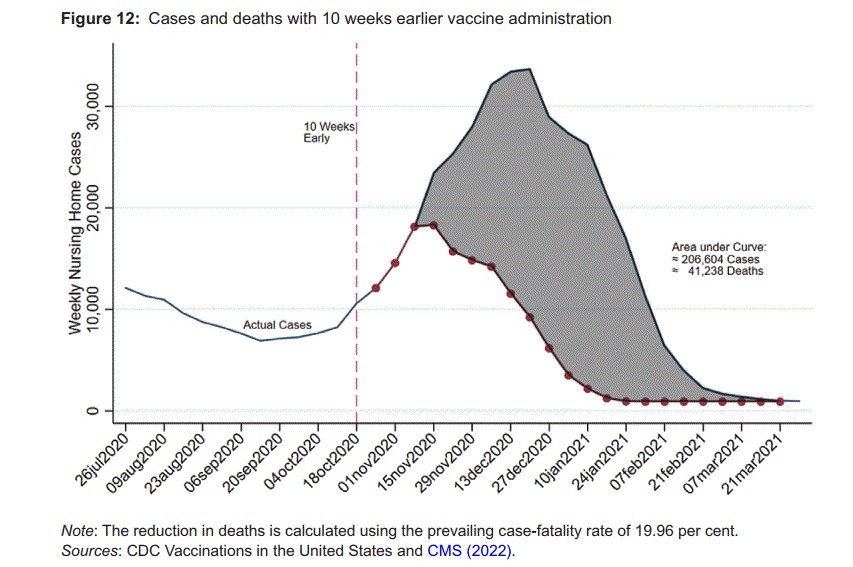The Birx Plan for Early Vaccination of the Nursing Homes
In Covid in the nursing homes: the US experience, Markus Bjoerkheim and I show that the Great Barrington “focused protection” plan was unlikely to have worked. I covered this last week. But there was one strategy which could have saved tens of thousands of lives–early vaccination. If the vaccine trials had been completed just 5 weeks earlier, for example, we could have saved 14 thousand lives in the nursing homes alone. But put aside the possibility of completing the trials earlier. There was another realistic possibility under our noses. We had could have offered nursing home residents the vaccine on a compassionate use basis, i.e. even before all the clinical trials were completed. An early vaccination option was neither unprecedented nor a question of 20-20 hindsight, early vaccination was discussed at the time:
Deborah Birx, the coordinator of the White House Coronavirus Task Force, forcefully advocated that nursing home residents should be given the option of being vaccinated earlier under a compassionate use authorization (Borrell, 2022). Many other treatments, such as convalescent plasma, were authorized under compassionate use procedures and there was more than enough vaccine available to vaccinate all nursing home residents. As a first approximation we find the Birx plan would have prevented in the order of 200,000 nursing home cases and 40,000 nursing home deaths. To put that in perspective, it amounts to reducing overall nursing home Covid deaths by over 26 per cent (using all CMS reported resident nursing home deaths as of 5 December 2021, and estimates of underreported deaths from Shen et al. (2021)).

The lesson is not primarily about the past. It’s about the central importance of vaccines in any plan to protect the vulnerable and about how we should be bolder and braver the next time.
Addendum: See also Tyler’s tremendous post (further below) on focused protection.